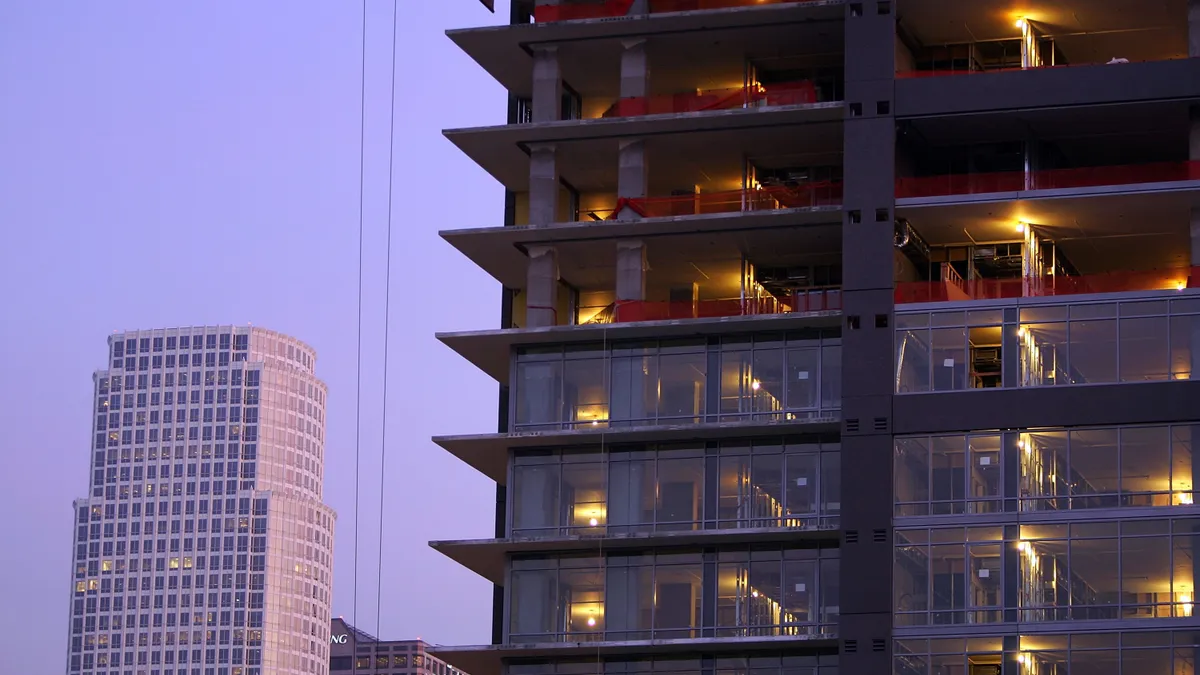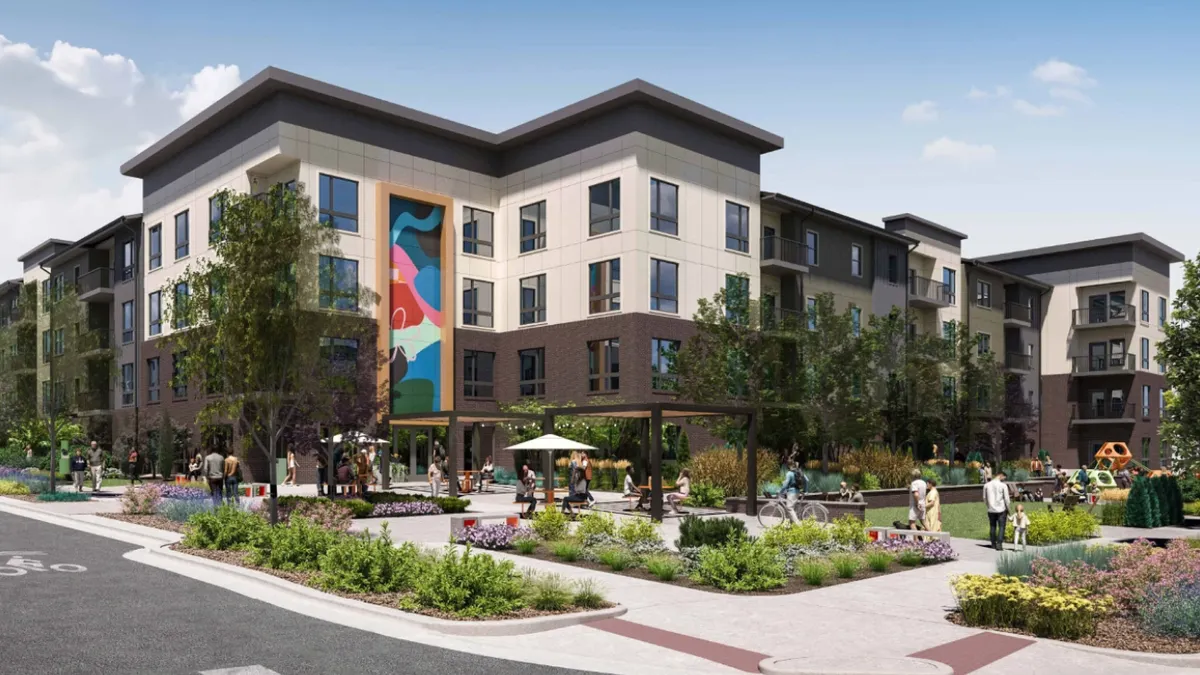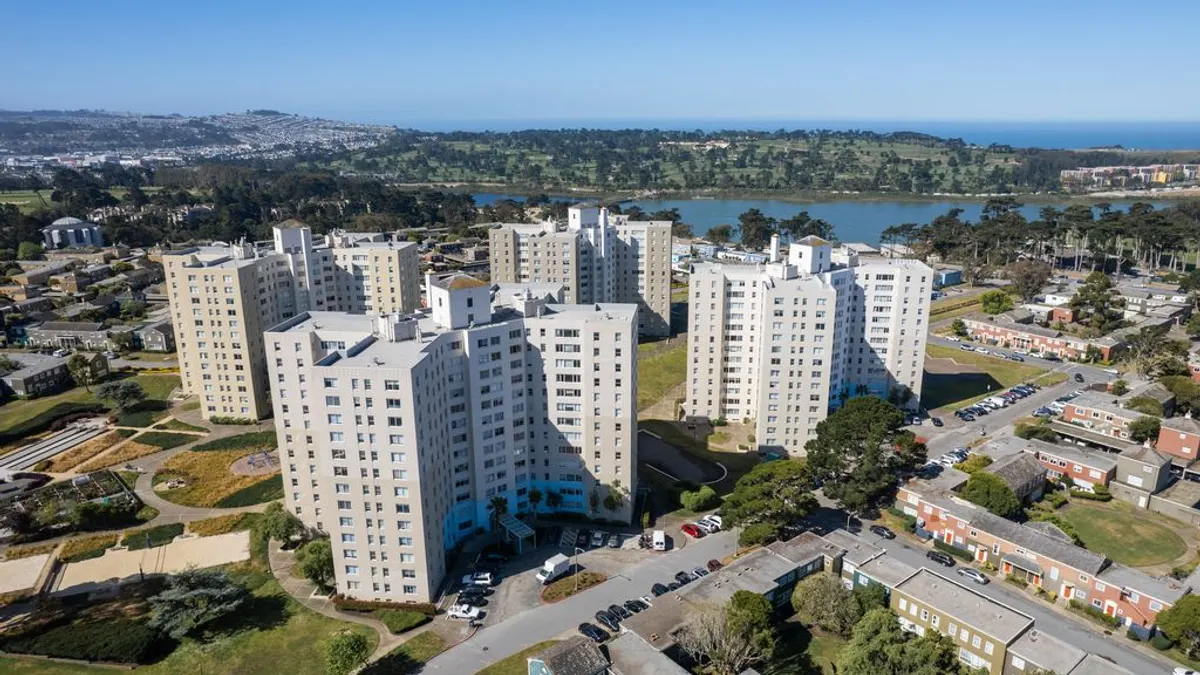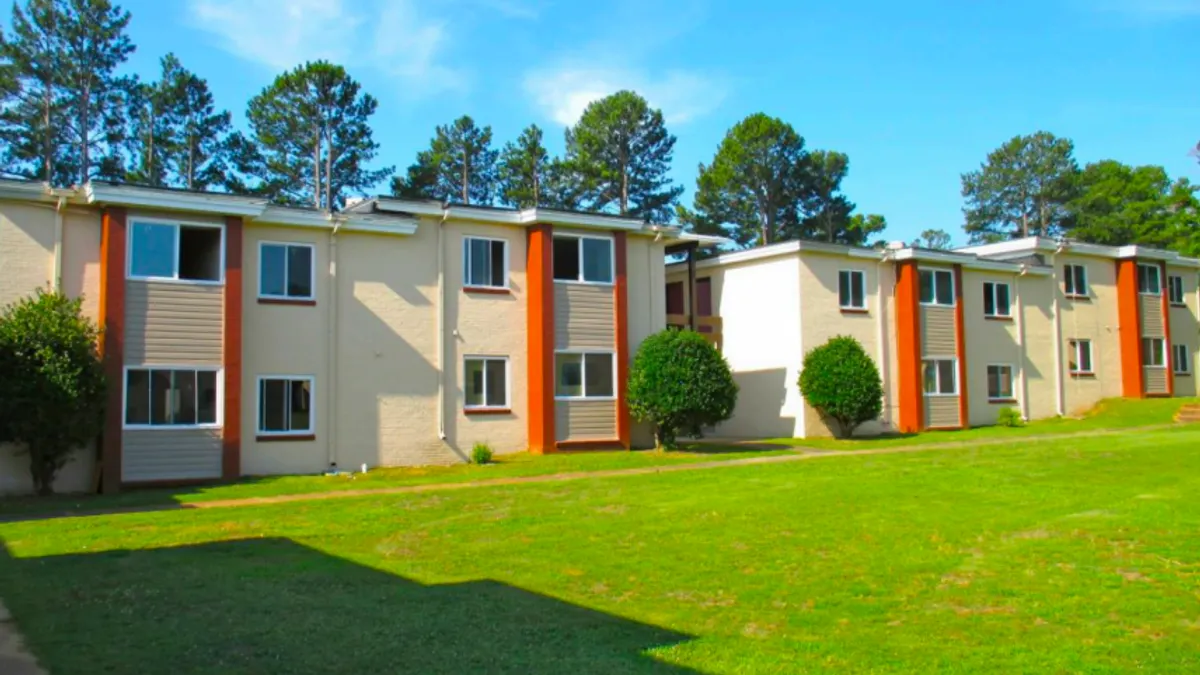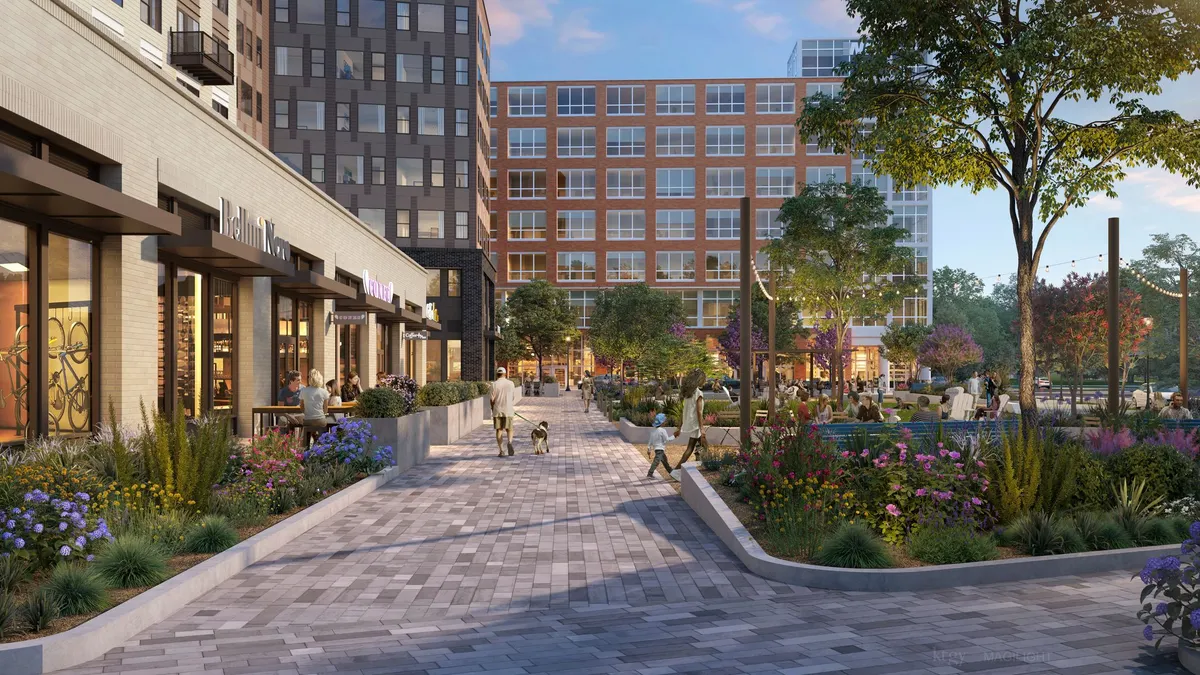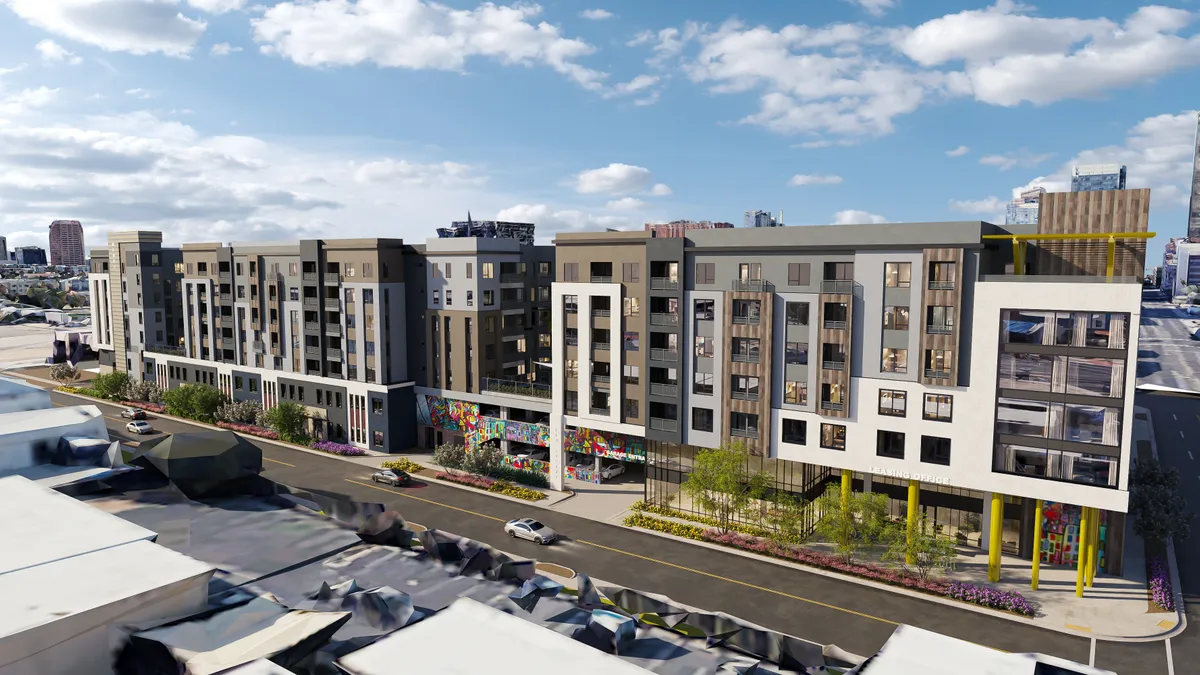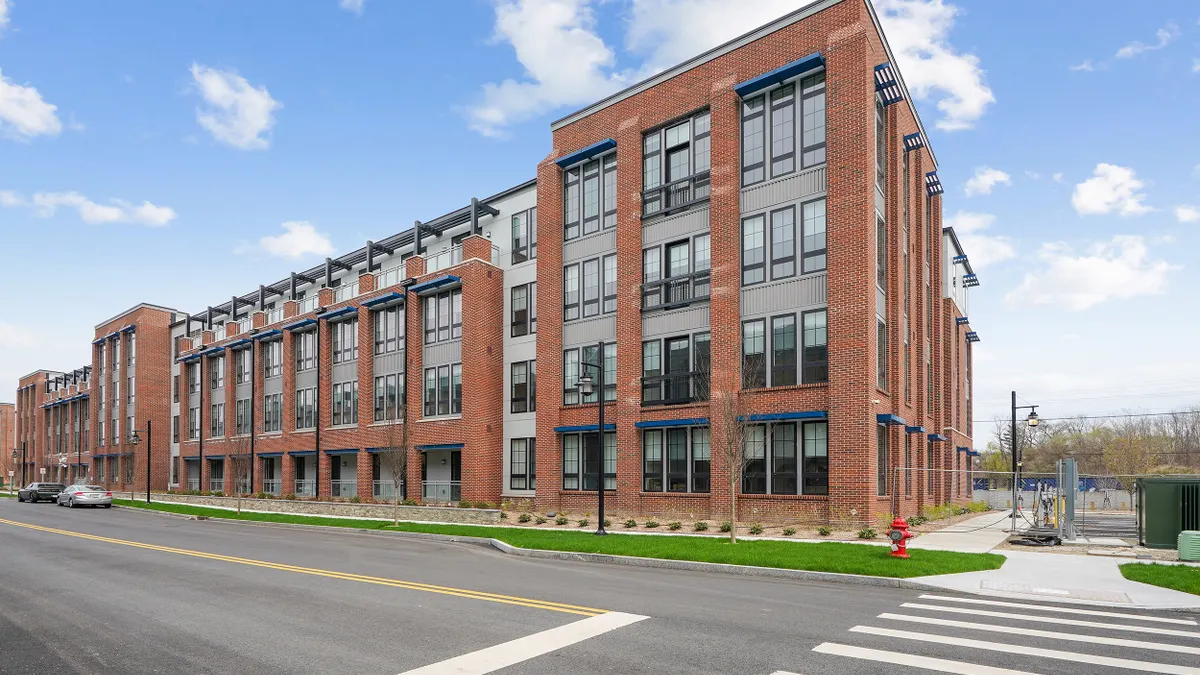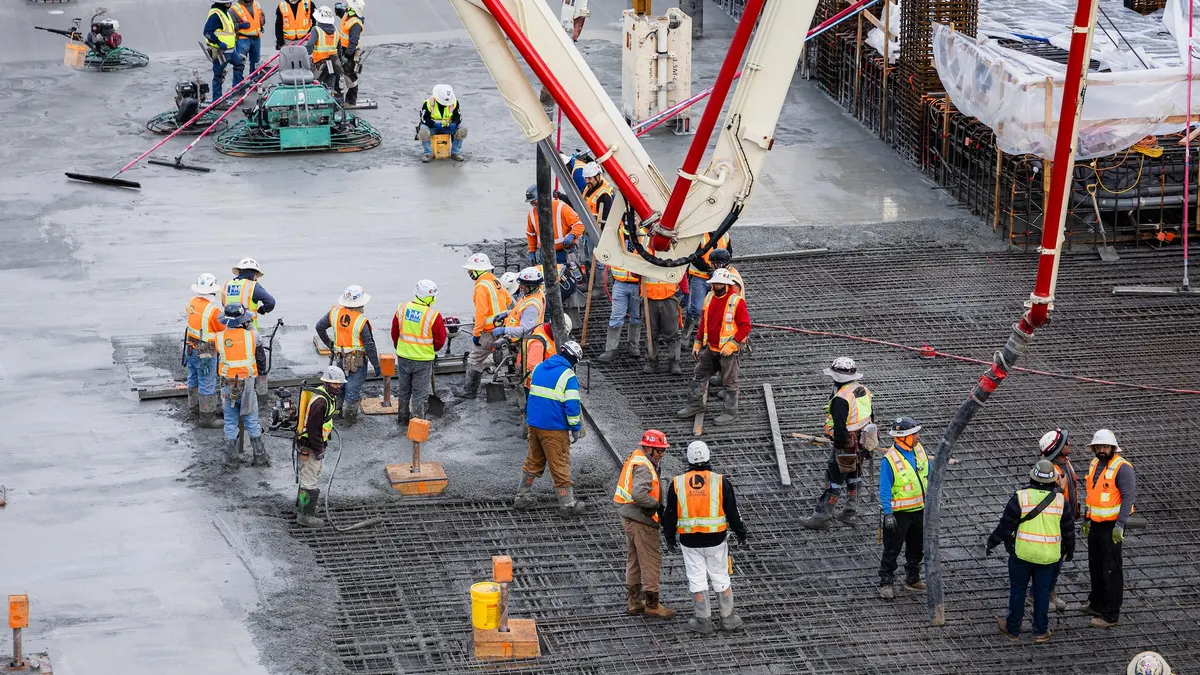Rental housing developers are aggressively seeking land to build on as rental rates have increased across the country. But as they pursue dirt for their next deals, they increasingly face off against sellers in a stronger position than ever before.
These land sellers are not just seeking higher prices, they also want more stringent terms, such as earlier closing dates and the ability to have deeper looks into buyers' finances, according to developers. These shifts are happening in markets that were once afterthoughts for development.
"They're looking for high pricing, but they're also looking for the terms that have become much more challenging," said Nathan Kaplan, a partner at Bay Harbor, Florida-based rental townhome and apartment developer Kaplan Residential.
Increased prices
Jay Hiemenz, president and chief operating officer of Alliance Residential, has seen this land price escalation firsthand. In one recent deal the company was bidding on, prices jumped $10,000 a door seemingly overnight.
"The land market everywhere is pretty competitive," Hiemenz said. "Land is following the inflationary trends of everything else."
In hot markets like Florida, prices have risen dramatically. Brandon Chasen, CEO of Baltimore-based Chasen Cos., has been scouting deals in the Sunshine State and says land has risen 20% to 40% over the past couple of years. Brokers in CBRE's North Florida office say it has increased around 30% in their section of the state. It can be hard to see real-time shifts in land pricing because what closes today usually went under contract one or two years ago.
To secure deals, buyers need to be nimble. With multiple firms chasing the same piece, a builder could lose out by waiting too long. "We have to move quicker than we would like, and we have to do that to compete," Hiemenz said.
Developers like Alliance have followed the migration of people into the suburbs and smaller cities, like Boise, Idaho, during the pandemic, creating a competitive environment in these once under-the-radar markets.
At one time, developers had fewer competitors and more breathing room when looking at deals outside of major metros. "There was probably more opportunity in the suburbs [in the past] because a lot of developers weren't looking out there," Kaplan said.
But even in markets that have traditionally attracted outside developers, competition has stiffened. Firms from around the world have historically migrated to Florida, particularly South Florida, to build new apartments. This trend has intensified as more people are moving to Florida, according to Seth Wise, co-CEO of Boca Raton, Florida-based apartment developer and owner of The Altman Cos.
"It's not lost on people [developers] that you've got 800 people moving into Florida every day," Wise said. "That creates an enormous demand for housing over time that many other places don't have. If you're a developer in New York, you're looking at Florida and saying, 'That is a place where I need to be. It's a place where the demand is really strong for housing.'"
More demanding environment
Just as prices have risen, so have seller demands. Wise said landowner terms have become much more "onerous" for when buyers need to close their deposit amounts. "It's definitely a seller's market for anything multifamily," Wise said.
In the past, land sellers would allow buyers to close later into the process, according to Kaplan. However, now, buyers want sellers to close once they get their zoning.
"They're pushing harder," Kaplan said. "They want bigger deposits and fewer contingencies on the deposits."
Sellers are also digging deeper into buyers' finances than ever before. "They're doing background checks, looking at who you are and what you've done to make sure you can perform and build the product that you say you're going to build," said Joe Morrison, president of Myrtle Beach, South Carolina-based Sands Cos., a construction company and developer that builds apartment-style cottages in the Southeast.
Shifts can happen quickly
But just because the land climate favors sellers now doesn't mean it will always be that way. Things can change quickly, as student housing developers noticed during the height of COVID-19.
When COVID-19 closed colleges and universities and remote learning took off, some sellers saw that the land market for student housing might not be as durable as they had always assumed, according to Brent Little, president and CEO of Dallas-based student housing developer Fountain Residential Partners.
"Three years ago, everybody felt like, if they had a piece of land, especially near a school, they thought it was gold. You had to beg, borrow, steal and plead to get them to turn it loose. It was pretty tough going," Little said.
But now, many of those same sellers are more likely to make a deal. "Land sellers are pretty amenable these days with all the volatility with COVID and what's happened with hotels and offices and everything else," Little said.
Click here to sign up to receive multifamily and apartment news like this article in your inbox every weekday.


